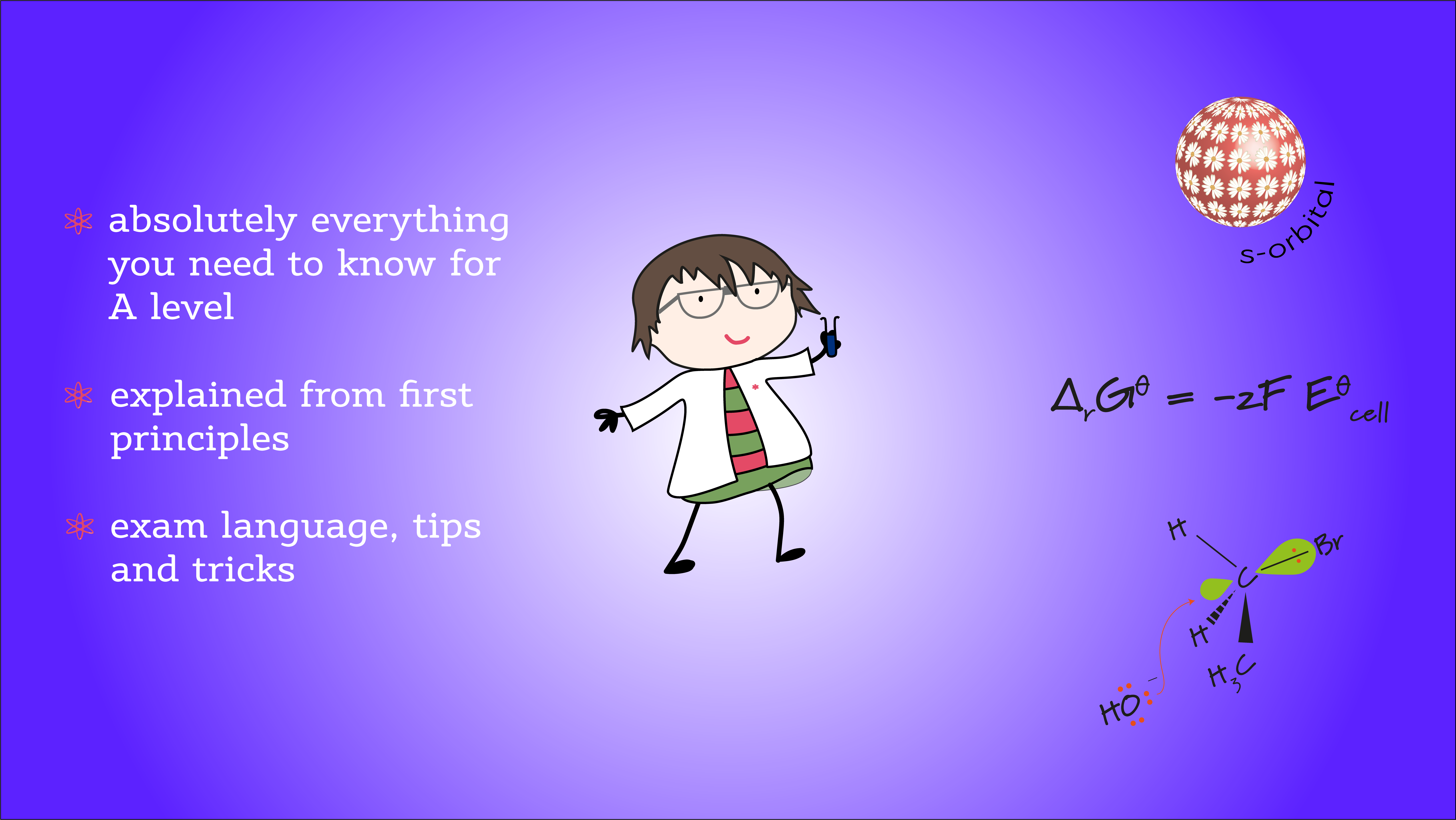Calculations for AS and A level Chemistry
Being confident in tackling different types of mole calculation is the foundation upon which much of A level chemistry stands
The ultimate A level chemistry resource

Being confident in tackling different types of mole calculation is the foundation upon which much of A level chemistry stands
This is a set of more difficult long answer exam questions that require you to use data from mass spectra,
Continue readingMixed spectra long answer exam question practice
24th NOvember 2025 Trending study hacks you should try (and a few you shouldn’t)! Powerful revision strategies and seriously effective
1. Strong acid – strong base titrations Imagine we are titrating a strong acid such as hydrochloric acid against a
Continue readingHow to explain the shape of a titration curve
A buffer is defined as a solution that is able to resist changes in pH when small amounts of acid
Continue readingWhat is a buffer and how do I calculate its pH?
Once again, we can assume that strong bases are fully dissociated in solution so the concentration of OH– is the
The strength of an acid (HA) is determined by its ability to donate protons or H+ ions to water. The [H+(aq)]
Continue readingHow to calculate the pH of strong acids and weak acids
Water self-ionises – essentially it reacts with itself to very small extent. We know this because even pure water has
We should start by appreciating that in reality many acid-base reactions are equilibrium reactions, even if it doesn’t appear obvious
At GCSE we defined acids as substances that ionised in water to give hydrogen ions, and an alkali dissolved in
An ion is an atom that has gained or lost electrons so that it is now charged – losing electrons
How can we possibly know what elements are present in the stars? It’s not like we can nip off and
Have you ever wondered where the elements originally came from? I think it is time for a little stardust and